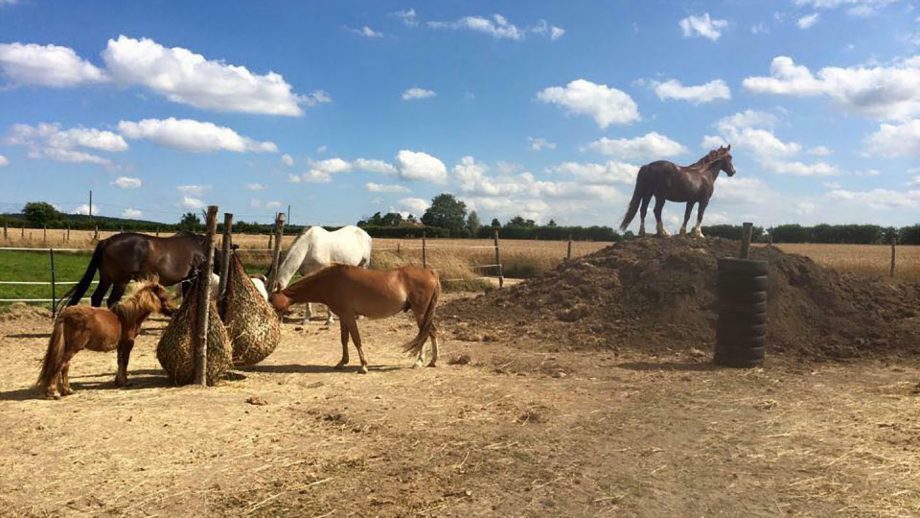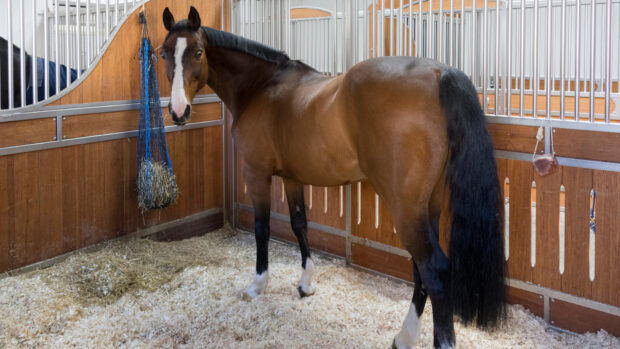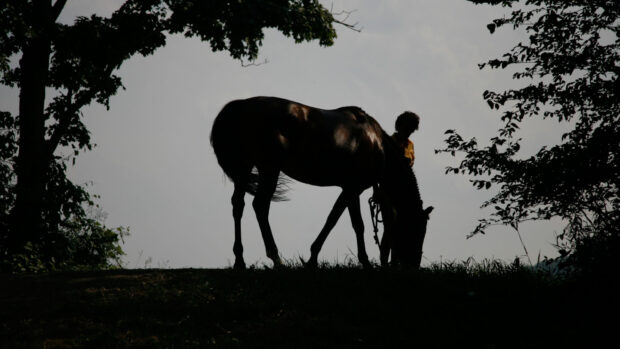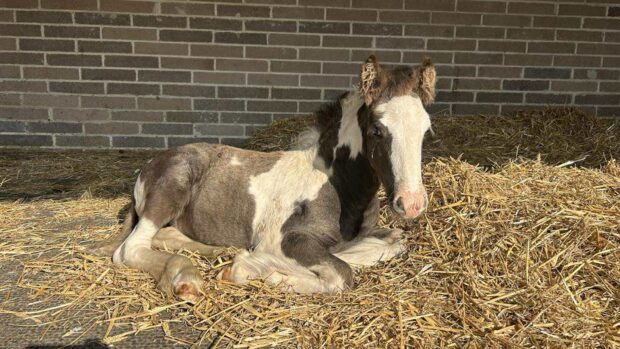More equestrians are considering how alternative grazing systems can have a positive impact on the environment, as well as their horses, research has shown.
A newly published study looking at the use of grazing methods, including tracks, the Equicentral System (a land management practice that focuses on sustainability and equine welfare) and woodland turnout, has revealed “promising insight” into owners’ behaviour and attitudes towards sustainability.
The online survey received 758 responses and aimed to look at different systems being used in the UK and for what reasons, for example for weight management, but “unexpected” results showed owners were also giving consideration to biodiversity, soil health and rewilding when using alternative grazing systems.
Responses included one participant who poo-picked daily, but used the muck to spread around the hedgerows and middle grazing of the track for dung beetles, and another who did not fertilise fields or reseed in order not to upset the equilibrium of the land.
Researcher Tamzin Furtado, of the University of Liverpool, told H&H the findings were “really exciting”.
“We discovered people are thinking much more broadly than just about their horses’ health, but how they can incorporate environmental principles as well,” she said.
“There was such diversity in what people were doing and there were definitely things we could all do more of, whether you are based at a livery yard or at home. From things like installing bird boxes, reducing the use of wormers or leaving logs in the corner of the field for insect life, they can all have an impact.”
Dr Furtado said she believes there has been a change in attitudes towards the environment, particularly since the COP26 summit in November, and more owners are looking at what they can do to help the environment.
“We’ve heard about how to make our gardens environmentally friendly and what farming can do to be more sustainable. But horse owners have such an exciting opportunity because we manage so much land between the whole horse-owning community,” she said, adding that there are hopes for future research on the topic.
“We would like to look at the differences in wildlife habitat, soil health and plant diversity in a range of places from livery yards to private yards and those with track systems, and compare how the land is managed.
“We would also like to talk to owners who have made a change to be more environmentally friendly and find out what made them do it and what changes they are seeing, so we can share those different strategies with other owners.”
One of the survey’s respondents, Hannah, set up a grass track for her horse and pony in Wales two years ago for weight management purposes.
“Our land was sort of rough grazing. There were a lot of nettles and brambles and really mature hedges, and I didn’t want to just get rid of all of that and have short grass everywhere,” she told H&H.
“With the track, the middle grows very long and I allow it to seed and we’ll get wild flowers. We get some kestrels and they can use this area for hunting when the horses aren’t on it. I think there’s a lot of wildlife there that wouldn’t be if we just kept it really short all the time. I also try to dig out any weeds so I’m not spraying them with chemicals, which keeps the nice wild flowers in the grass.”
Hannah, who is a biologist, said that managing her land not just for her horses, but for wildlife too, is important to her and she recommends grass tracks to others.
“I’m aware horses can damage the land and poach it, so we want to maximise the area we’ve got by using the track. Even if you need all the land for horses, you can always leave a small bit for wildlife, like keeping plants or hedges. Horses like picking at leaves and berries so it provides enrichment for them, too,” she said.
“When setting up a grass track, the greatest expense was the electric fencing, but you might have that if you’re dividing the field anyway. I imagine some people are quite restricted in what they can do with their land – for example, for people renting or where landowners don’t want permanent fencing, but having grass tracks with an electric fence is an easy way to do this.”
Roly Owers, World Horse Welfare chief executive, told H&H what the study highlights “so well” is that many of the elements of good traditional management – such as low grazing densities, rotation and allowing areas to rest – can also offer better environmental conditions when compared to other more intensively managed and grazed areas.
“Collectively, equines graze a huge amount of land, which makes horse owners – knowingly or not – significant environmental stewards of our precious countryside, so small changes really can make big differences,” he said.
“The findings of this paper will hopefully help to encourage us to make informed choices about how we keep our horses and include the environmental impact among the many factors considered when making those choices, while always putting horse welfare first.”
You might also be interested in:

Track living: the alternative horsey set-up

How all equestrians can help make the world a greener place

Why equids must be part of plans to cope with climate change

Subscribe to Horse & Hound magazine today – and enjoy unlimited website access all year round
Horse & Hound magazine, out every Thursday, is packed with all the latest news and reports, as well as interviews, specials, nostalgia, vet and training advice. Find how you can enjoy the magazine delivered to your door every week, plus options to upgrade your subscription to access our online service that brings you breaking news and reports as well as other benefits.




